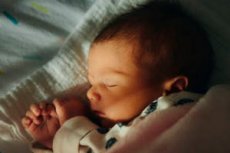
丹娜—法伯癌症研究所研究人员的一项新研究为乳腺癌幸存者和想要生育孩子的年轻女性带来了令人鼓舞的消息。
一项追踪近 200 名接受乳腺癌治疗的年轻女性的研究发现,大多数在治疗后平均 11 年内尝试怀孕的女性都成功怀孕并生下孩子。
该研究的作者表示,该研究结果将于 2024 年美国临床肿瘤学会 (ASCO) 年会上公布,其意义尤为重要,因为它解答了先前关于乳腺癌幸存者妊娠率和活产率的研究中所遗留的几个问题。
“先前的研究存在局限性,因为它们只纳入了特定亚组患者,随访时间相对较短,并且没有询问参与者在研究期间是否尝试过受孕,”资深研究作者、丹娜—法伯癌症研究所青年乳腺癌项目创始人兼主任、医学博士、公共卫生硕士安妮·帕特里奇(Anne Partridge, MD, MPH)说道。“本研究旨在通过追踪一组乳腺癌幸存者以及在确诊癌症后尝试过受孕的患者,来弥补这些不足。”
研究中的患者是“年轻女性乳腺癌研究”的参与者,该研究追踪了一组40岁前被诊断患有乳腺癌的女性的健康状况。在1213名符合条件的参与者中,有197人报告在平均11年的随访中尝试过怀孕。这组女性的平均诊断年龄为32岁,大多数被诊断患有激素阳性乳腺癌。研究人员会定期询问参与者是否正在尝试怀孕,以及她们是否已经怀孕并生育。
研究人员发现,研究期间,73% 的女性尝试怀孕并成功受孕,65% 的女性成功产下活产婴儿。在开始癌症治疗前选择冷冻卵子/胚胎以保留生育能力的女性活产率更高,而年龄较大的参与者怀孕率和活产率较低。
研究对象的乳腺癌分期从0期(非侵袭性,局限于乳腺导管内)到III期(癌细胞已扩散至淋巴结)不等。研究人员发现,确诊时的乳腺癌分期与妊娠或活产无统计学相关性。
“对于许多患有乳腺癌的年轻女性来说,治疗后能否生育是她们最关心的问题,”丹娜—法伯研究所第一作者、医学博士、公共卫生硕士Kimiya Soruri说道。“我们的研究结果或许有助于为患者提供生育咨询。治疗前卵子/胚胎冷冻与更高的活产率相关,这一发现凸显了为这类患者群体提供生育力保存服务的需求。”

